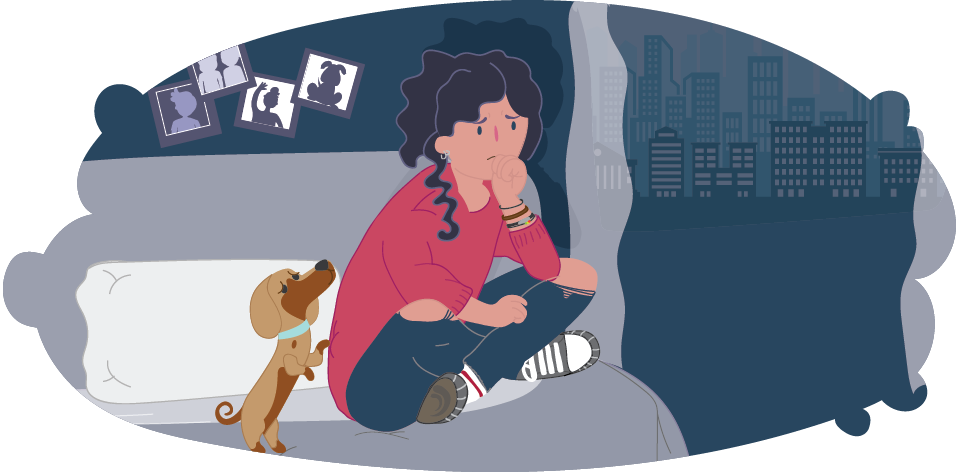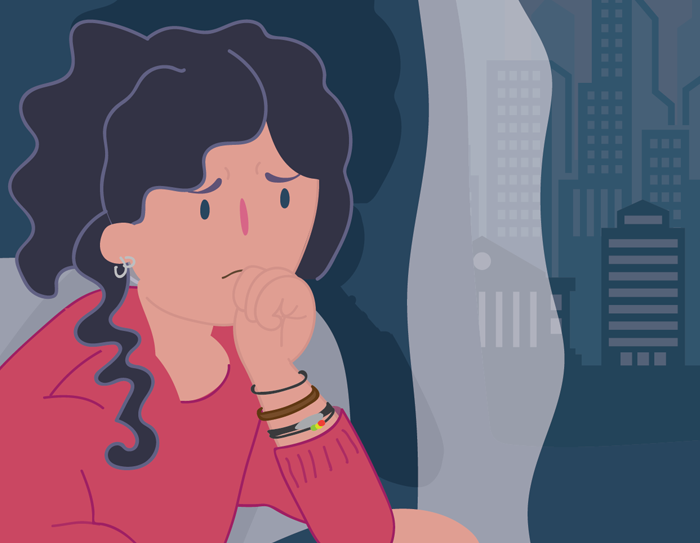Understanding sexual abuse
Sexual abuse is never ok. In this article we focus on what it is and where to get help and support.
Content Warning: this article contains violence and trauma related content that may be triggering or distressing.

Keeping safe from sexual abuse
Know what it is and ways to keep yourself safe
- Sexual abuse is when someone involves, forces, pressures or tricks you into taking part in any kind of sexual activity
- It can also be known as sexual assault
- Sexual abuse isn’t always sex – it can also include touching, showing you pornography or watching you naked
- It can be done by a stranger, somebody you know or someone you love and trust
- Abuse is never ok - no matter who is doing it or what they do
- Sexual abuse is against the law and is a serious crime
- If you or someone you know is affected by any of these things then it’s really important that you tell an adult and get help as soon as you can
If you are in danger or worried about your safety, call 000 and ask for the Police.
What could sexual abuse look like?
Keep in mind that if it makes you uncomfortable or scared then it’s not ok and you don’t have to go along with it no matter who is doing it. There are a range of things which can be called sexual abuse, but here are some examples so that you can know what it looks like and get help if you need to:
Talking to you about sexual topics
Showing you pornography, naked pics/videos
Getting you naked or looking at you naked
Getting you to watch other people having sex
Making you touch their body in a sexual way
Taking pics/videos of you naked or partly naked
Sending sexual comments to you online or through text
Touching you anywhere on your body that you don’t like
Being naked in front of you or showing you their genitals
Having sex or trying to have sex with you - including oral sex
Sexual abuse is a serious crime
It’s against the law for anyone to sexually abuse you
- It’s never ok for someone to do sexual things with you when you are underage, even if you agree
- The law says that you are not able to agree to any sexual acts if you are under 16 years old
- It’s against the law for someone to offer money, favours or gifts to try and get you to do sexual things
- It’s against the law for someone to blackmail you, use force against you or threaten you to get you to do something which makes you feel uncomfortable
- It’s against the law for a person in a position of care or authority to have sex with you
- For more information on the law and your rights, see the Lawstuff website
They might tell you to keep it a secret or try and make you believe that it’s ok or it’s your fault. Sexual abuse is NEVER ok and NEVER your fault. No one has the right to make you do something you don’t want to do – Sky, Kids Helpline Counsellor
Being sexually abused can be a frightening and confusing experience
Being abused can have a big impact on your wellbeing. It’s normal for your body and mind to react in certain ways when you’ve been hurt. Remember, there is no right or wrong way to feel about sexual assault. Whatever you are feeling, it’s OK. It’s common to feel:
Helpless or alone
Mixed emotions
Sad or depressed
Restless or moody
Anxious or fearful
Like harming yourself
Guilty or ashamed
Unable to talk about it
Angry or betrayed
A loss of trust in others
Shocked or physically ill
Worried about your safety
Unfocused or have flashbacks and nightmares
Confused about your body's reaction
Things that may get in the way of getting help
You don’t have to go through this on your own. We’re here to support you. - Jackie, Kids Helpline Counsellor
It’s OK to reach out and let someone know
It can be really hard to talk about but it’s important to let someone know so you can get the support you need. Here’s what you can do:
Make sure you’re safe – If you’re worried about your safety or you’re in danger call 000 and ask for the Police.
Talk to someone you trust – It could be a grandparent, teacher, a friend’s parent, counsellor, police or doctor.
Write it down – If it’s too difficult or upsetting to say out loud you could try telling someone in a letter or email.
Tell a friend – A close friend could help you figure out where to get help from and support you to tell someone.
See a doctor – It’s important to get medical care as soon as you can - especially if you’re hurt or concerned about pregnancy or sexually transmitted infections. Visit your doctor, local hospital or health centre for support.
Talk to a specialised service – Like 1800RESPECT or Bravehearts Support Line. They can provide you with specialised counselling, support and information.
Don’t give up – If you speak to someone who doesn’t want to help or is too shocked to help, tell another person until someone listens and offers to help you.
Call Kids Helpline – We’re here for you. We’ll listen, believe you and help you to stay safe.
Check these out too:
What is abuse
Abuse takes many forms and there isn’t one single way that ...
READ MEPhysical violence and abuse
Violence is never okay. If you or someone you know is experiencing ...
READ MEDomestic violence at home
Violence or abuse at home isn’t ok. Everybody deserves to feel ...
READ MEHow to ask for help
Sometimes we need help but we're not able to ask for it. ...
READ METalking helps! We’re here for you.
No problem is too big or too small.
We're here 24 hours a day, 7 days a week






